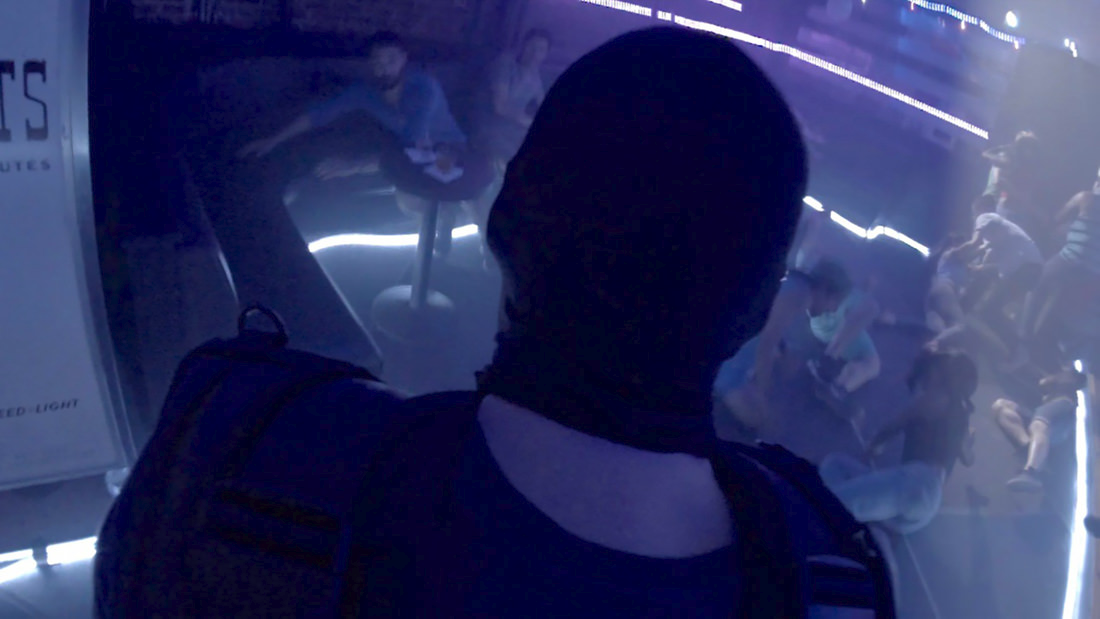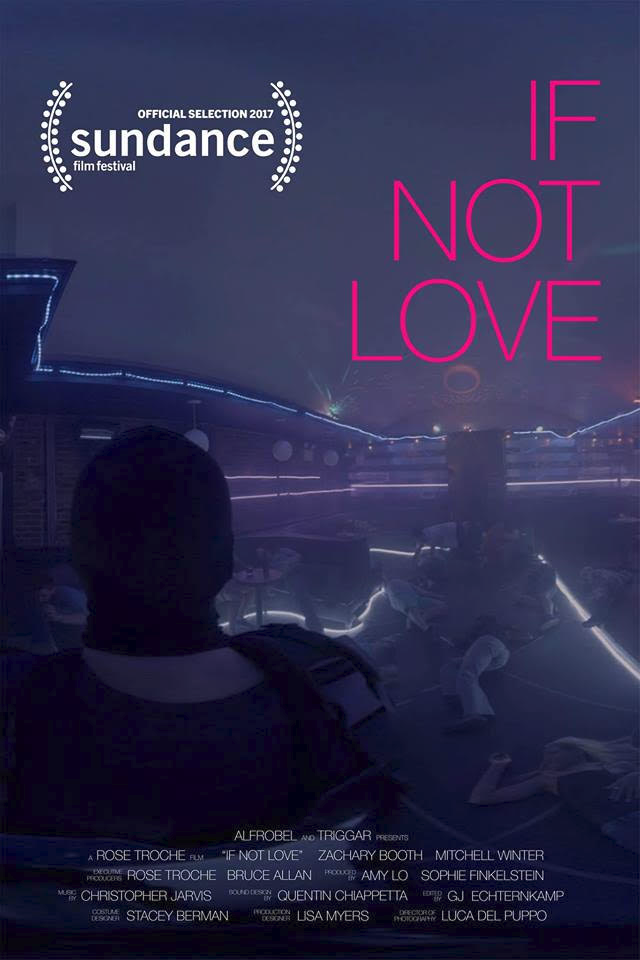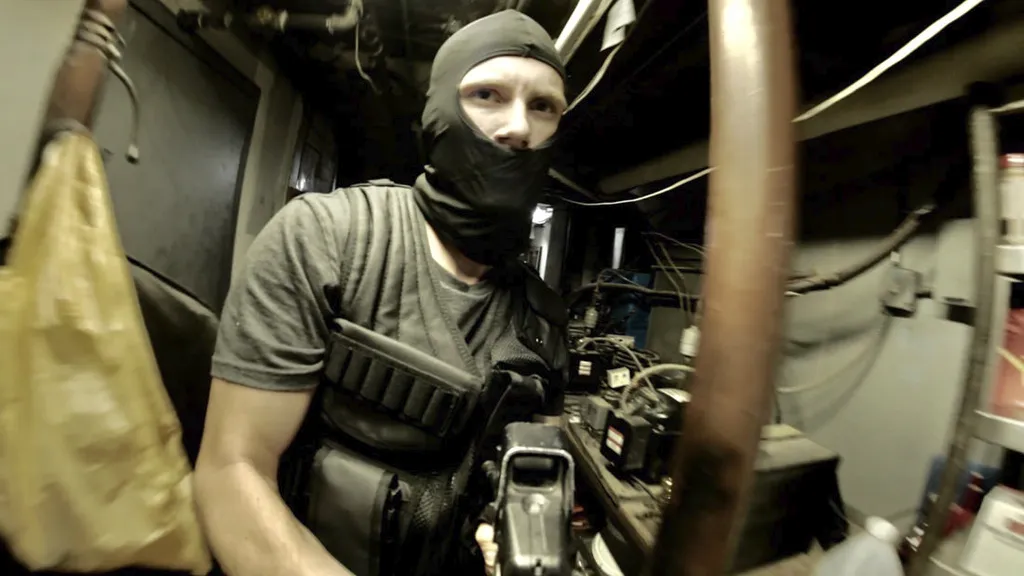It happens like a dream. A scene we’ve seen too many times over the past few years of innocent bodies piled up on top of each other is miraculously reversed; lifeless corpses and screaming wounded slowly return back to their proper selves, as if slowly lifted by angels, dancing and laughing in a nightclub like they should be as the world unwinds itself from the tangle of hate. At a time in which the global community is drowning in division and darkness, If Not Love projects a powerful message of light and hope, and it does so using VR.
“I had this image that popped into my brain,” Rose Troche, director of this short VR film appearing on Wevr’s Transport platform later this week,,tells me, “it was one of resurrection — of the dead and wounded rising up and being joyous. It had to be VR because I wanted the viewer in the middle of the dance floor, feeling both the fall and the rise.”
It’s a powerful image, and its potency hasn’t been lost in the translation from thought to film.
At its heart, If Not Love is a response to the 2016 shooting at the Pulse nightclub in Orlando. It follows a man that unleashes his internal fury on a dance club the night after making love to another man and leaving in distress. His inner struggle with his homosexuality and faith leads him to commit the kind of unforgivable atrocity we’ve seen in too many headlines of late. But, crucially, we also see another path, a path in which this man stops fighting and embraces himself, and we explore the curative effects it has not just for him but the world around him.
If Not Love first succeeds in making the toxic effects of hate an inescapable reality. A sickness wormed its way into my stomach in the moments leading up to its burst of violence that put me in the middle of the terror. It’s impossible to look away as the gunman walks into the club, the viewer just behind him, and unloads a flurry of bullets on an unsuspecting crowd. You’re right in the middle of the nightmare you pray you never find yourself in, and you can’t look away.
But the film’s message isn’t to shock, it’s to solve. It’s the reversal sequence shown later that formed the foundation for the piece, Troche says, and it’s cleared to see why. The powerful vision of love undoing so much pain and conflict surrounding you is an important reminder of the need for tolerance and understanding that some are losing their grip on.
While its setting and themes stem from last year’s tragedy, Troche also ties it to several other events that shocked the world over, including the horrific attacks in Paris in last 2015, and the mass murder in Nice later on in 2016.
 “It’s not that these are the only attacks that affected me,” Troche explains, “it’s just for some reason they all hit me more personally – perhaps because I had gone to Bataclan and walked that promenade in Nice, but I had not been to Pulse – with Pulse there was a shorthand. I am Puerto Rican. I am gay. I know what a club is – It is church. It is sacrosanct.”
“It’s not that these are the only attacks that affected me,” Troche explains, “it’s just for some reason they all hit me more personally – perhaps because I had gone to Bataclan and walked that promenade in Nice, but I had not been to Pulse – with Pulse there was a shorthand. I am Puerto Rican. I am gay. I know what a club is – It is church. It is sacrosanct.”
Church is the key word here. One of the key differences between this piece and the reality of the Pulse shootings is that we follow not a Muslim but a Christian. “I understand how much blood is on the hands of that faith,” Troche says. “To this day in many countries the long arm of those representing the word of their particular god wish to eradicate certain individuals who don’t abide by the teachings of their faith. It seems naive to only point a finger at Muslims.”
Avoiding ignorance is an important part of keeping If Not Love’s core message intact. We don’t view the gunman as an incurable abomination, but someone that is in desperate need of love and acceptance, which in turn destroy the terrible potential future plotted out for himself.
Particularly that this point in the social climate, I found If Note Love to be a work of healing and calming, despite it’s terrible subject matter. It echoed something that can be hard to remember in trying times; with tolerance and understanding, we might just make it through.
Look out for If Not Love on Transport for Vive and Gear on August 25th.






























